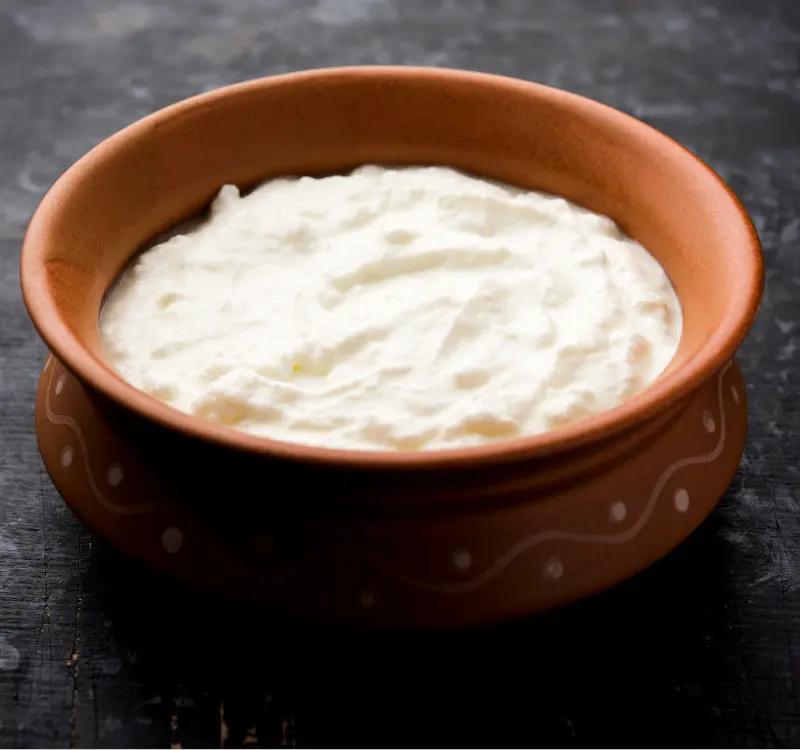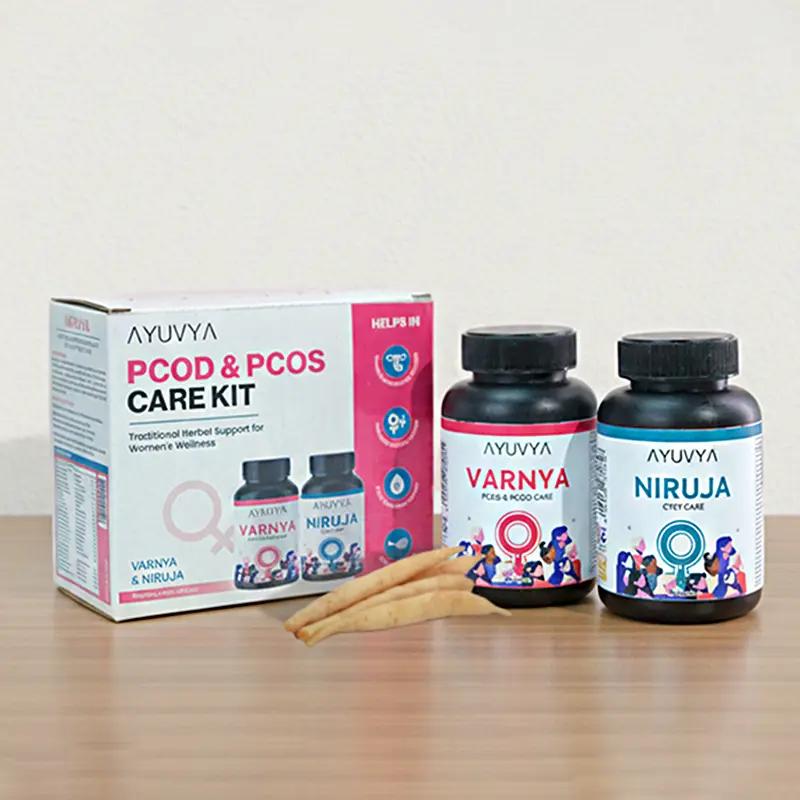Can We Eat Curd During Periods? Myths and Facts
Jul 09, 2024

Many women wonder, can we eat curd during periods?" It is a common question with varying advice available.
Table of Contents:
- Myths About Curd During Period?
- Here are the Benefits of Curd During Period
- How to Eat Curd During Period?
- Are There Any Side Effects of Eating Curd During Period?
- Conclusion
- FAQs
Curd is a dairy product that is loved by many and is known for its cool, creamy texture and health benefits. However, when it comes to menstrual health, there are many opinions on whether it is good to include it in your diet during periods. This article explores the myths and real benefits of eating curd in period.
Myths About Curd During Period?
-Curd Causes Cold and Infections: Many believe that curd can lead to colds or flu-like symptoms during periods because it is a cold food. However, there is no scientific evidence to support this idea. Curd does not cause colds; these are caused by viruses.
-Increases Menstrual Pain: Another myth is that curd increases menstrual cramps since it has cooling effects. Contrary to this belief, curd has calcium and magnesium, which can actually help ease menstrual pain rather than increase it.
-Leads to Heavier Bleeding: Some think that eating curd during periods makes menstrual bleeding heavier. This is not true. There is no proven effect of curd on the flow of menstruation. Eating curd in a period does not change how much you bleed.
-Should Be Avoided at Night: It is often said that curd should not be eaten at night during periods as it can lead to indigestion. However, if curd is normally well-tolerated by your digestive system, there is no reason to avoid it at night during your menstrual cycle.
-Delays Period: Some people believe that eating curd can delay periods. However, there is no scientific evidence to support this idea. The timing of periods is controlled by hormones, and eating curd does not affect these hormonal cycles.
-White discharge: can be caused by various factors, such as infections or hormonal changes, but eating curd is not one of them. Curd is actually good for maintaining a healthy balance of bacteria in the body.
Here are the Benefits of Curd During Period
Eating curd during periods can provide several health benefits that support menstrual well-being. Here are five unique benefits:
Soothes Digestion
Curd during periods can significantly ease digestive discomfort. It is rich in probiotics, the beneficial bacteria that help maintain a healthy balance in your digestive tract. These probiotics enhance the gut flora, which is crucial for smooth digestion and can help prevent common menstrual issues and PMS symptoms such as bloating. By keeping the digestive system calm and functional, curd helps ensure that digestive disturbances don’t add to the discomfort during menstruation.
Boosts Mood
Consuming curd during periods can also have a positive impact on emotional health. Curd is rich in calcium, which strengthens bones and supports the nervous system. Calcium helps release chemicals in the brain that send messages throughout the body. These chemicals help control mood, reducing mood swings during periods.
Reduces Cramps
Curd can be very helpful if you have acidity, which might make menstrual cramps feel worse. It has a cooling effect on the stomach and can balance stomach acid levels. Eating curd increases the presence of good bacteria in your gut, which helps digest food better and reduces acid build-up. When your stomach is not upset from too much acid, it is easier for your body to deal with other types of pain, like the cramps during your period. So, including curd in your diet might not only help with acidity but also make menstrual cramps less painful.
Enhanced Immune System
Curd during periods can boost your immune system. It contains probiotics, which are good bacteria that help protect your body from harmful bacteria and infections. These probiotics improve how your immune system responds, making it better at fighting off illnesses. This is especially useful during your period when you might feel weaker and more vulnerable to getting sick. By eating curd, you can help strengthen your defences and keep yourself healthy during your menstrual cycle.
Reduce Inflammation
Curd can help reduce inflammation in your body. It contains probiotics, which are beneficial bacteria that promote a healthy gut. A healthy gut can reduce inflammation in the body, which can help with period discomfort. Eating curd keeps your immune system balanced, preventing too much inflammation that causes pain and swelling. Regularly eating curd may help reduce pain and swelling during your period.
How to Eat Curd During Period?
When considering what happens if we eat curd during periods, it is important to know the best ways to incorporate it into your diet to maximise its benefits. You can eat curd directly or mix it with fruits or honey for a more enjoyable snack. Eating it as part of a balanced meal can also help with absorption of its nutrients. For those who prefer spices, mixing curd with cumin or pepper enhances flavour without compromising health benefits. Try to consume curd during the day time. This will aid digestion and boost its soothing effects on menstrual symptoms.
Are There Any Side Effects of Eating Curd During Period?
- While curd generally aids digestion, some people might experience bloating or indigestion, especially if they consume it in large amounts.
- Individuals who are lactose intolerant should avoid curd as it can cause gastrointestinal discomfort, including gas and diarrhea.
- Although not scientifically proven, some believe that consuming cold foods like curd might trigger cold symptoms in sensitive individuals during periods.
- Keep in mind the calorie content if you are watching your weight; although curd is nutritious, it is also calorie-dense.
Conclusion
Eating curd during periods can offer many health benefits, from easing digestion and boosting mood to reducing menstrual cramps and inflammation. Despite some common myths, curd does not cause heavier bleeding or worsen cold symptoms and is generally safe for most people to consume. Including curd in your diet can help maintain a healthy balance in your body, especially during menstruation when women may experience more discomfort. Always consider your personal dietary tolerances and consult with a healthcare provider if you have concerns about lactose intolerance or other dietary issues.
Frequently Asked Questions
Comforting a girl on her period can include being understanding, offering emotional support, and helping with practical things like providing a heating pad for cramps or preparing healthy meals.
Yes, you can eat curd during periods. It is beneficial for your digestive system and can also help in reducing menstrual discomfort.
Yes, you can take yoghurt during your period. It functions similarly to curd, providing probiotics and calcium that support menstrual health.
The best time to eat curd is during the day as it can aid in digestion and is less likely to cause any digestive discomfort which might occur if eaten late at night.
Yes, curd is good for period cramps. It contains calcium and magnesium, which are known to help in muscle relaxation and reducing cramps.
Eating curd during periods can help improve your digestion, boost your mood due to its calcium content, and potentially reduce menstrual cramps.
Yes, eating curd during periods is generally good because it contains probiotics that help maintain digestive health and calcium that can ease menstrual cramps.














